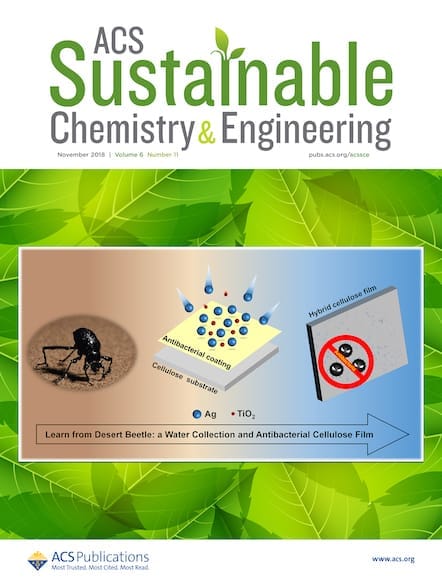When a scientific journal adds a new associate editor, that change means more for readers than just a tweak to the masthead. New associate editors bring new experiences, new perspectives, and new ideas to their publications. Get to know some of ACS’ latest editors and learn what unique gifts they’ll be bringing to their respective […]

Jingwen Chen, ACS Sustainable Chemistry & Engineering
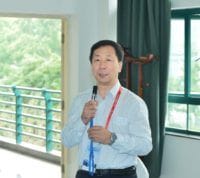
What is your research focus? What initially attracted you to your field?
Computational toxicology technology for sustainable chemical management. I have been studying in this field since I was a postgraduate.
What do you hope to bring to your journal?
To promote manuscripts in the areas relating to the sustainable management of synthetic chemicals.
What are the major challenges facing your field today?
Mechanism understanding, modeling, and big-data analysis.
What do you think is the most interesting and/or important unsolved problem in your field?
Prediction of chemicals risks from their molecular structures.
Do you have a recent paper in an ACS journal that you’d like to highlight?
Development of Prediction Models on Base-Catalyzed Hydrolysis Kinetics of Phthalate Esters with Density Functional Theory Calculation, Environ. Sci. Technol., 2019, 53, 5828−5837
***
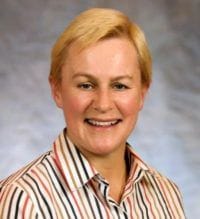
Margaret Faul, Organic Letters
What is your research focus? What initially attracted you to your field?
I trained as a synthetic organic chemist with Professor David A. Evans at Harvard University. At Amgen, I work in the Process Development organization whose mission is to transform the molecules of today into the medicines of tomorrow. My primary area of research is focused on the development of new modalities (synthetic and biologic) across all stages of development from preclinical to commercial. I became attracted to the field due to my desire to develop new medicines to treat patients and due to the excitement that the role brings. Every molecule is different, requiring new technical challenges and opportunities that need to be addressed which makes every day on the job fun!
What do you hope to bring to your journal?
I hope to attract high-quality industrial (and academic) synthetic manuscripts to Organic Letters that do not have a home elsewhere. This includes the excellent synthetic work that is being done across the Pharmaceutical industry for the identification and development of new chemical entities.
What are the major challenges facing your field today?
Two major challenges in the Pharmaceutical industry today are (1) the increasing complexity of our drugs which requires us to develop a new and innovative way to manufacture our products that are also efficient from a cost perspective; (2) There are many new medicines in development in our industry. The urgency to bring them forward for requires us to improve upon the typical length of time required to go from the identification of a clinical candidate to product launch, which can be 7-10 years. To be successful, we need to become more nimble in our development and reduce the overall time it takes to deliver our medicines to patients.
Do you have a recent paper in an ACS journal that you’d like to highlight?
Molecular Complexity as a Driver for Chemical Process Innovation in the Pharmaceutical Industry
J. Org. Chem. 2019, 84, 8, 4583-4603
DOI: 10.1021/acs.joc.9b00735
***
Gender Diversity in Process Chemistry
Org. Process Res. Dev. 2019, 23, 2, 109-113
DOI: 10.1021/acs.oprd.8b00378
Anything else you’d like readers to know about you?
I am Vice Chair of the International Consortium for Innovation and Quality in the Pharmaceutical Industry (IQ), a member of the Board of Directors of Organic Synthesis and on the Editorial Board of Science of Synthesis where with Thieme we sponsor the Dr. Margaret Faul Award for Women in chemistry.
***
Bradley Moore, Organic Letters
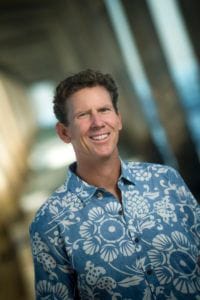
What is your research focus? What initially attracted you to your field?
My research focuses on natural product discovery, biosynthesis, and biocatalysis. I have long been interested in the chemistry of life, how organisms construct elaborate molecules, and how we can apply the wisdom of evolution to solve challenging chemical problems.
What do you hope to bring to your journal?
I hope that my basic and applied background in connecting genes to organic chemistry will help attract and nurture new articles to Organic Letters focused on nature’s chemistry and biocatalysts.
What are the major challenges facing your field today?
Modern genomics is rapidly helping us understand the chemical logic of nature. The next major challenge will be to broadly apply that knowledge to biosynthesize chemicals at the industrial scale and to reduce our dependence on petrochemical feedstocks.
What do you think is the most interesting and/or important unsolved problem in your field?
One important unsolved problem that I find fascinating centers on unraveling how marine microorganisms synthesize massive polyether ladder toxins such as brevetoxin, one of nature’s most complex organic molecules that continues to plague our coastlines, impact our health and economy, and fascinate us as chemists. Biosynthesis may hold the key to improving our ability to predict how and when this toxin is made and perhaps one day may help mitigate its toxic impact.
Do you have a recent paper in an ACS journal that you’d like to highlight?
We published a natural product total synthesis paper in JACS late last year on napyradiomycins A1 and B1 in which we only employed biocatalysts to assemble these fascinating meroterpenoid antibiotics, thereby demonstrating the power of enzymes in the rapid construction of complex molecules.
Total Enzyme Syntheses of Napyradiomycins A1 and B1
J. Am. Chem. Soc. 2018, 140, 51, 17840-17845
DOI: 10.1021/jacs.8b10134
***
Mariola Tortosa, Organic Letters
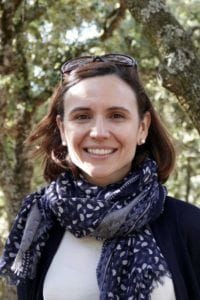
What is your research focus? What initially attracted you to your field?
Our goal is to develop novel chemical transformations using catalysis as a tool. Natural products and drugs are the inspiration behind many of the things we do. For this reason, asymmetric catalysis plays a key role in our research. We have an active program focused on the development of metal-catalyzed borylation reactions and on finding new catalytic ways to cleave carbon-nitrogen bonds. Broadly speaking, we want to discover robust catalytic methods that can provide answers to unsolved problems found in the synthesis of biologically active compounds.
What do you hope to bring to your journal?
Organic Letters is the leading organic chemistry journal. I see my role as an opportunity to help to define what is timely and significant to advance the field while maintaining its rapid publication times.
What are the major challenges facing your field today?
The development of catalytic transformations utilizing functional groups that are thought to be inert is an ongoing challenge. Progress in this field is changing the way scientists think about designing new molecules. More selective catalysts, as well as a deeper mechanistic understanding of chemical reactions, will have a profound impact on the design of new molecular entities, and in the late-stage functionalization of highly derivatized compounds.
Anything else you’d like readers to know about you?
I have two daughters, ages 7 and 3. Outside my workday, I find myself often running from swimming and tennis classes to piano lessons or choir rehearsals. We are a multicultural household, so we spend our vacation between the Mediterranean and Connecticut, visiting my husband’s family. We are lucky we can enjoy the best of both cultures!
***
Christopher Cummins, Inorganic Chemistry

What is your research focus? What initially attracted you to your field?
My research is in the area of exploratory synthetic chemistry. I was attracted by the opportunity to bring new substances into existence, and then to be able to explore reactivity patterns and possible applications. Especially interesting to me are molecules that challenge our ideas about what is possible in terms of chemical structure and bonding.
What do you hope to bring to your journal?
I have experience working with chemical problems across the periodic table including organometallics and main-group element chemistry, and even uranium chemistry. I have a background as well in applying tools from quantum chemistry to problems in chemical structure, bonding, and reaction mechanisms. I hope to be able to elicit thoughtful and constructive reviews for my authors and to provide quick turnaround times.
What are the major challenges facing your field today?
A major challenge is the paucity of funds to support basic science. Inorganic chemistry is a very broad discipline and many pockets of the periodic table are much less well developed than others in terms of fundamental chemistry.
Do you have a recent paper in an ACS journal that you’d like to highlight?
Functionalization of Intact Trimetaphosphate: A Triphosphorylating Reagent for C, N, and O Nucleophiles
J. Am. Chem. Soc., American Chemical Society, 2019, 141, 1852-1856
DOI: 10.1021/jacs.8b12204
Anything else you’d like readers to know about you?
Those interested can follow my lab on Twitter: @ccclabmit.
